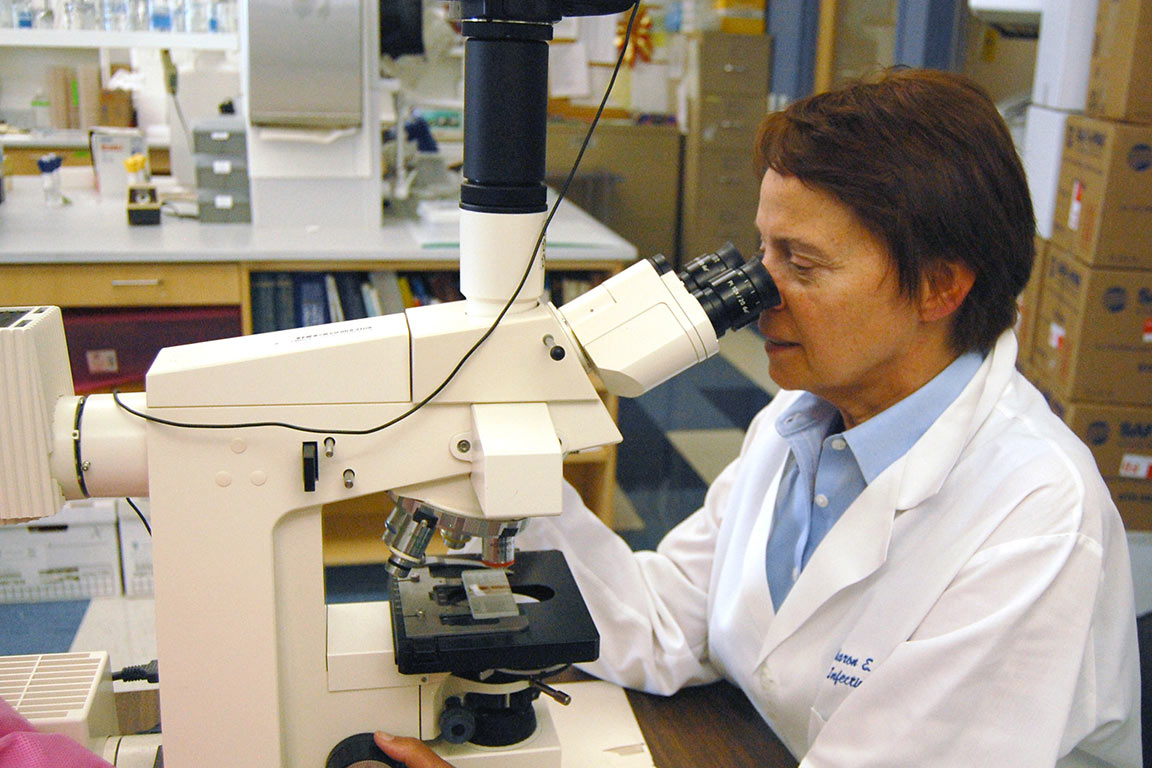SLU Launches Summertime Flu Vaccine Study
Saint Louis University is conducting federally funded clinical research that aims to boost the effectiveness of the seasonal flu vaccine.
The study, which includes eight Vaccine and Treatment Evaluation Unit (VTEU) sites and as many as 240 volunteers, is sponsored by the National Institute of Allergy and Infectious Diseases (NIAID), part of the National Institutes of Health.
The trial is a phase 1 study, and up to 30 volunteers who are healthy and between 18 and 45 years of age are being recruited to participate at Saint Louis University. The study will take about 12 months and involve nine clinic visits. Participants will receive $75 per for visit for their time and travel.
“While flu vaccines remains the best way to help protect people from influenza, we need to improve their effectiveness, particularly when the strain of influenza doesn’t match the vaccine,” said Sharon Frey, M.D., clinical director of Saint Louis University’s VTEU, and the principal investigator for the St. Louis trial.
During the 2017-2018 flu season, the most recent year for which there are final statistics, the Centers for Disease Control and Prevention estimated 48.8 million cases of flu, 959,000 hospitalizations because of complications from influenza, and 79,400 deaths in the United States.
Study volunteers will receive one dose of the 2018-2019 Fluzone® Quadrivalent (Influenza Vaccine) or Flublok® Quadrivalent (Influenza Vaccine), two FDA- approved vaccines designed to protect against four strains of flu. These vaccines will be given with or without two different adjuvants, one of which is supplied by Vaxine. Adjuvants are agents that may help stimulate the immune system.
In addition to learning if the adjuvants impact the body’s immune response, researchers will gather information about safety and whether the vaccines with added adjuvants are well tolerated.
“The study compares two types of vaccines and two adjuvants that work in different ways to trigger an immune response. We’re particularly interested in whether the adjuvants may help to provide protection when the vaccines and circulated viruses are not well matched,” Frey said.
The vaccines in the study are made from either an inactivated flu virus or a purified recombinant flu protein, which cannot cause influenza. Additionally, because SLU is launching the study before the start of the 2019-2020 flu season, volunteers will be able to get the 2019-2020 seasonal flu shot after they receive the investigational vaccines, Frey added.
SLU is eligible to conduct the research because its Vaccine and Treatment Evaluation Unit is one of nine institutions selected in 2013 by the National Institutes of Health to help develop and evaluate vaccines that may help protect people from infectious diseases and emerging threats. The project is funded under Contract No. HHSN272201300021I. The federal government has funded vaccine research at SLU since 1989.
To learn more about vaccine research being conducted at Saint Louis University, call 314-977-6333 or email vaccine@slu.edu. For more information on this study, please visit the ClinicalTrials.gov website.
Established in 1836, Saint Louis University School of Medicine has the distinction of awarding the first medical degree west of the Mississippi River. The school educates physicians and biomedical scientists, conducts medical research, and provides health care on a local, national and international level. Research at the school seeks new cures and treatments in five key areas: infectious disease, liver disease, cancer, heart/lung disease, and aging and brain disorders.


















